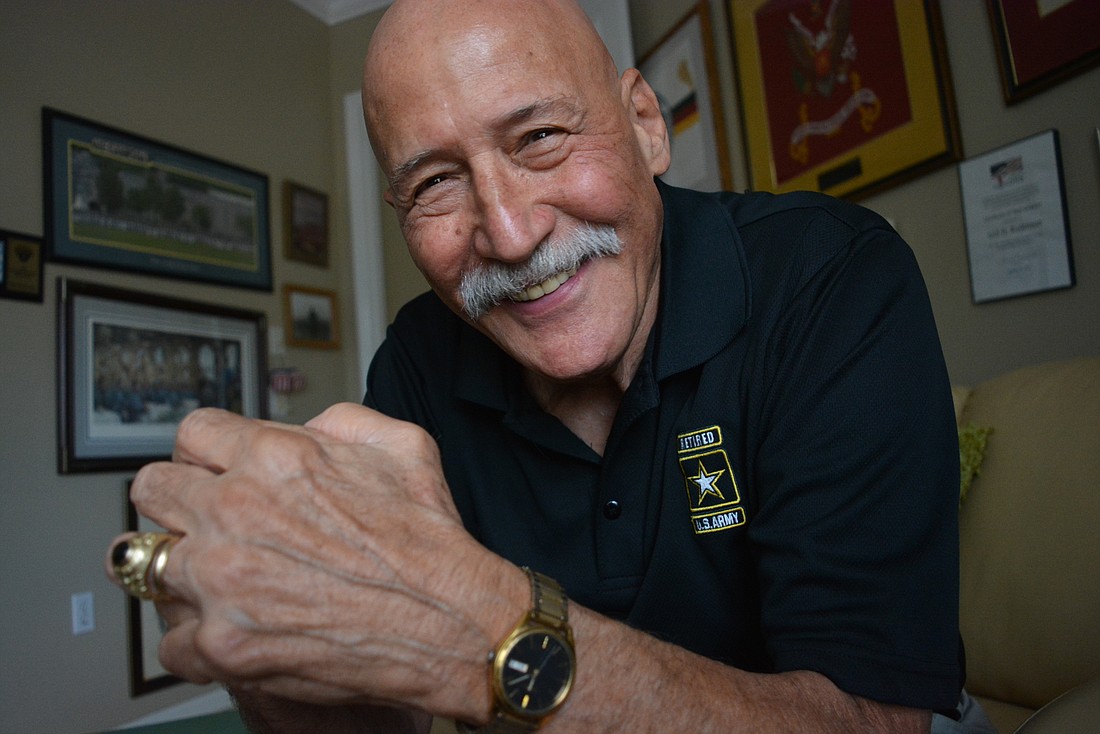- April 24, 2024
-
-
Loading

Loading

East County resident Gill Ruderman may have immigrated to the United States from Palestine as a Hebrew-speaking child in about 1948, but his allegiance has always been to the United States of America. Following an appointment to West Point Military Academy, Ruderman followed his father, Maurice Ruderman, into military service. He volunteered to fight in the Vietnam War and served in the Army for 26 years, ending his career as a colonel. Ruderman said his Palestinian heritage — his mother, Aviva, also was Palestinian — has helped shaped his perspective on freedoms.
“I think, very simply, I admired what my father was doing [in the U.S. Army] and wound up not having a great desire to do anything else.”
“Before we came to America, we traveled through Arab countries in Africa and the Middle East. My mother used to tell the story of how we were traveling through a non-Palestinian-friendly area. They put something on my lips to make me sleepy, so I wouldn’t speak words in Hebrew at an inappropriate time.”
“My limited experience as a non-American living in that part of the world has clearly made me more appreciative of our freedoms and lifestyles, even back 60 years ago.”
“Some people say they loved every day they had in uniform. I cannot say that. Some experiences in Vietnam were not rewarding. But I enjoyed my career, almost every aspect of it.”
“[During Vietnam], the country was divided. We knew that. We knew there were protests. We knew it was an unpopular war. I heard stories of some of my West Point classmates who got out and joined the protest movement. It never affected my desire to be a member of the Army. My belief, feelings about the Army, were stronger than the negative aspects of serving at that time.”
“For food in Vietnam, we had what was called C-rations. The C stood for combat. Some of it was so bad, no matter what you did to it, it was terrible. Some of it was palatable. I’m sure some of the stuff I was eating in the ’60s was packaged in the ’50s. I didn’t think about that then. If it was a meal, you were grateful. You ate when you could. The Army did a great job providing us rations, in my experience.”
“At a middle school presentation about 10 years ago, a student asked if we considered ourselves heroes. In my opinion, most of us try to downplay that. The heroes are the soldiers who didn’t come back.”
“Patriotism is believing in your country and working or helping to strengthen that belief. Everyone should contribute to the concept of ‘compulsory service.’ Don’t just say it; do something about it. It’s like having a ‘God Bless America’ sticker or ‘We Support Veterans’ sticker on your car but yet not contributing in any way, shape or form.”
“I wasn’t involved with veterans organizations until we moved here in 1991. I think it’s important if you have a skill or an opportunity to utilize your skills, you shouldn’t stop using them. One of my group’s mottos was, ‘Never stop serving.’ I try to do that.”